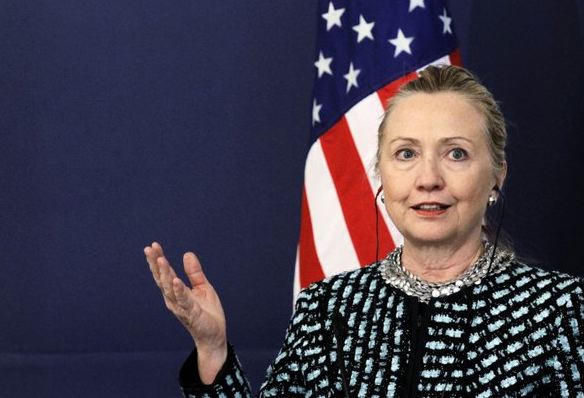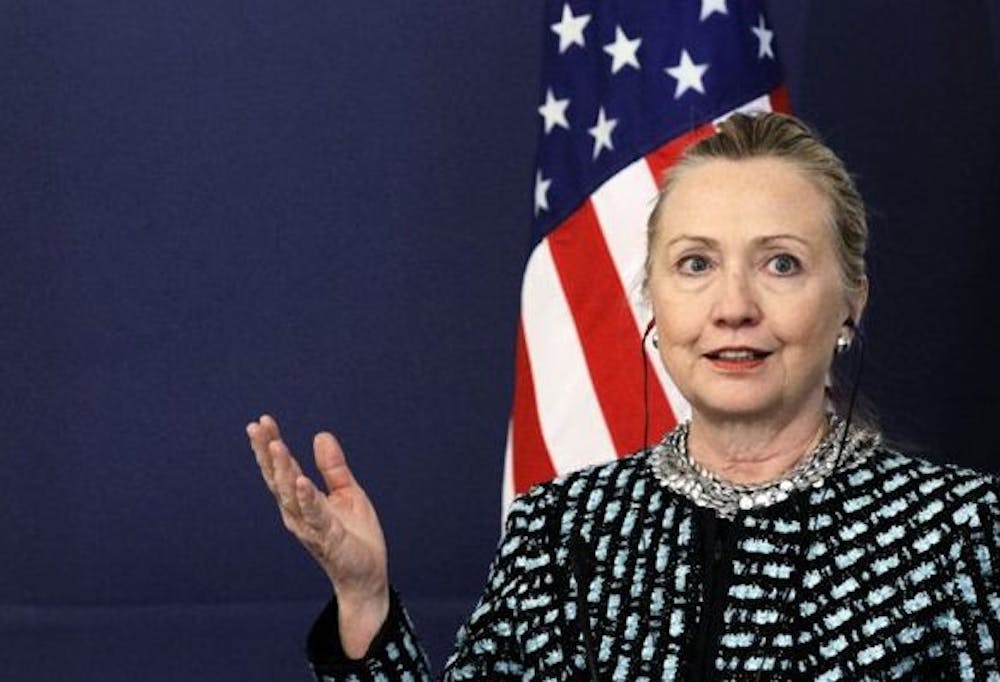By Gabrielle Beacken
News Assistant

Hillary Rodham Clinton wasn’t the first Secretary of State to use her own personal email address, but she is the first one to exclusively use her private account. The use of the her e-mail accounts raises questions of “transparency and government security, according to CNN. Former Secretaries of State, Colin Powell and Condoleezza Rice, both used private accounts, as well as their government emails, according CNN.
It was revealed on Monday, March 2, that while serving as Secretary of State from 2009 until 2013 under President Obama’s administration, Clinton used a personal email account to conduct official government business. This news has sparked a discussion about government transparency and cyber security, especially concerning White House officials.
According to the original New York Times report on the revelation, Clinton’s aides “took no actions to have her personal emails preserved on department servers at the time,” which the Federal Record Act necessitates.
“I can recall no instance in my time at the National Archives when a high-ranking official at an executive branch agency solely used a personal email account for the transaction of government business,” said Jason R. Baron, a lawyer at Drinker Biddle & Reath and former director of litigation at the National Archives and Records Administration, in a Times article.
According to the National Archives and Records Administration, emails and letters sent to federal officials’ personal or governmental accounts are supposed to be preserved and accessible to the media and public as government records. There are exceptions to the rule, such as classified or sensitive information.
A specially-appointed White House committee investigating the Benghazi attacks in 2012 was the first body to notice the lack of official White House emails sent from Clinton. After State Departments meetings with Clinton’s lawyers in August 2014, the State Department sent letters to the secretaries of state, dating back to Madeleine Albright (1997-2001), asking for any of their government related documents, according to the Times article.
In December 2014, with 50,000 pages of emails sent from Clinton to the State Department, there were about 900 pages linked to the attacks in Libya, according to the Times.
On Wednesday, March 4, Clinton responded to the email disclosure by Tweeting, “I want the public to see my email. I asked State to release them. They said they will review them for release as soon as possible.”
The State Department has confirmed they would review Clinton’s request, though the process could exceed several months, according to the CNN article.
The White House press secretary, Josh Earnest, defended Clinton’s use of her personal email. According to a CNN article, the administration’s policy “allows individuals to use their personal e-mail address as long as those e-mails are maintained and sent to the State Department, which, if you ask Secretary Clinton's team, that’s what they completed in the last month or two.”
As a favorite for the presidential Democratic nomination in 2016, several congressional Democrats have either vocally supported Clinton or have declined to comment, according to the CNN article.
While Elijah Cummings, U.S. Representative for Maryland’s 7th district, believes that it’s “very unfortunate” that Republicans are making every effort “to go after Hillary Clinton,” the Republican National Committee (RNC) insists on a complete investigation.
A letter addressed to the State Department Inspector General sent from chief counsel at the RNC said, “The American public deserves to know whether one of its top-ranking public official's actions violated federal law,” according to the CNN article.
According to a Washington Post article, Clinton’s successor, John F. Kerry, has “promised” that the emails will be reviewed, as well as publicly released.







